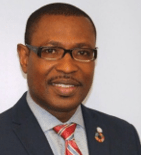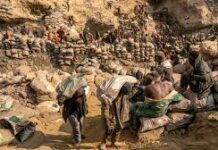By Ishmael Nii Amanor Dodoo(Dr) and Samuel Lartey(Prof)
As the 2024 general elections approach, the National Democratic Congress (NDC), led by former President John Dramani Mahama, is gearing up to present a compelling vision for Ghana’s future. Among the bold promises in their manifesto is the introduction of a 24-hour economy, designed to boost productivity, create jobs, and invigorate economic growth.
However, as the NDC is currently in opposition, they lack direct access to governmental resources and have no control over the national budget. This limitation necessitates a robust and innovative financial strategy to fund their ambitious plans.
This article explores how the NDC can mobilize resources and effectively fund their manifesto, including the 24-hour economy, through strategic partnerships, donor funding, innovative tax initiatives, and grassroots mobilization.
Laying the groundwork for swift implementation
John Mahama and the NDC are demonstrating proactive leadership by meticulously preparing to hit the ground running with their 2024 manifesto and the 24-hour economic program.
Even in opposition, they are laying the groundwork for swift implementation by securing strategic partnerships, engaging with international donors, and mobilizing grassroots support through crowdfunding initiatives.
The party has developed detailed plans for innovative taxation policies, such as night and nightlife taxation, and is actively courting private sector commitments to ensure that critical infrastructure projects can commence immediately upon taking office. This forward-thinking approach reflects their readiness to govern and their commitment to delivering transformative economic change for Ghana.
Before the Elections: Laying the Financial Groundwork
- Mobilizing Private Sector Support and Strategic PPPs:
While in opposition, the NDC can leverage relationships with the private sector to secure funding for key aspects of their 24-hour economy plan. Strategic public-private partnerships (PPPs) can be proposed, focusing on sectors that are critical to the continuous operation of the economy, such as energy, transportation, and telecommunications.
Although these PPPs cannot be formalized until after a potential electoral victory, the NDC can begin discussions and lay the groundwork with potential partners. By creating a clear, attractive value proposition, the NDC could secure commitments from private investors who see the long-term benefits of participating in Ghana’s economic transformation.
- Attracting Donor Funding:
Donor funding will be crucial for the NDC while in opposition. By aligning the 24-hour economy initiative with international development priorities, such as sustainable urban development and economic resilience, the NDC can attract significant donor support.
Organizations like the World Bank, the African Development Bank, and various UN agencies might be interested in supporting a framework that promotes economic growth and job creation. The NDC could seek to secure pledges of up to $500 million in donor funding before the elections, which could be activated upon winning the mandate to govern.
- Utilizing Crowdfunding and Grassroots Financing:
Crowdfunding offers an innovative approach to financing that could be particularly effective for the NDC in opposition. By launching a regulated and licensed crowdfunding platform, the party could invite small contributions from a broad base of supporters, both within Ghana and the diaspora.
This approach not only raises funds but also engages and energizes the party’s base. The NDC could set a target of raising GHS 500 million through these channels, using the funds for campaign activities, manifesto promotion, and preliminary project planning.
- Planning for Night and Nightlife Taxation:
Though the NDC cannot implement taxation policies while in opposition, they can develop detailed plans for new tax initiatives that would support the 24-hour economy post-election.
One such initiative could involve night and nightlife taxation, where businesses operating 24/7, such as entertainment venues, late-night restaurants, and transportation services, would contribute a modest tax to fund public services necessary for a 24-hour economy. These plans could be presented to voters as a clear and actionable strategy, demonstrating the NDC’s readiness to govern.
During the Elections: Sustaining Financial Momentum
- Engaging Volunteers and Sympathizers for Funding:
The NDC can leverage its extensive network of volunteers and sympathizers to sustain campaign activities and promote the 24-hour economy initiative. By setting up formal channels for small, consistent donations—such as mobile money platforms or online payment gateways—the party could mobilize significant grassroots support.
If one million supporters each contribute GHS 10 monthly, this could generate GHS 120 million over a year, funding key aspects of the campaign and preparatory work for post-election implementation.
- Securing Commitments for Strategic PPPs:
During the election campaign, the NDC can continue to secure informal commitments from potential private sector partners. By showcasing successful examples of PPPs from other countries and presenting detailed project plans, the party could build a coalition of willing partners.
These partnerships would be crucial in ensuring that the 24-hour economy can be quickly and effectively implemented if the NDC wins the election.
- Building International Support and Donor Confidence:
As the election approaches, the NDC can intensify its efforts to build international support and confidence in their 24-hour economy plans. By engaging with international stakeholders and presenting the initiative at global forums, the NDC could secure additional pledges of support.
This would not only bring in potential financial resources but also enhance the party’s credibility as a forward-thinking, globally connected political force.
Upon Successful Elections: Implementing the Vision
- Expanding the Tax Base with Night and Nightlife Taxation:
If the NDC wins the election, one of the first steps would be to implement the planned night and nightlife taxation policies. These taxes, projected to generate GHS 1 billion annually, would fund essential services such as enhanced public transportation, security, and utility services needed to support a 24-hour economy.
The party could also consider introducing taxes on luxury goods and digital services, further expanding the tax base and ensuring sustainable funding for their initiatives.
- Formalizing PPPs and Launching Projects:
Post-election, the NDC could move quickly to formalize the PPPs discussed during the campaign. By executing well-negotiated agreements with private sector partners, the party could kickstart large-scale infrastructure projects such as the construction of new power plants, expansion of transportation networks, and development of telecommunications infrastructure. These projects would provide the backbone for a 24-hour economy, ensuring that key services are available around the clock.
- Continuous Monitoring and Evaluation:
To ensure the success and sustainability of the 24-hour economy, the NDC could establish a robust monitoring and evaluation framework. This would involve regular assessments of financial performance, project outcomes, and socio-economic impact. The NDC would be responsible for publishing annual reports detailing the progress and challenges of the 24-hour economy initiative, ensuring transparency and accountability to the public and stakeholders.
- International Engagement and Donor Activation:
With the mandate to govern, the NDC could activate the donor pledges secured before the elections. By aligning their projects with global development priorities, the party could ensure continued international support. These funds would be directed towards social infrastructure, such as education and healthcare, which are essential for maintaining a 24-hour economy.
Contemporary Funding Mechanisms
John Mahama and the NDC are well-positioned to leverage contemporary funding technologies and infrastructure, such as carbon funding and green funding, to execute their ambitious 2024 manifesto promises.
Recognizing the global shift towards sustainable development and the increasing availability of climate finance, the NDC could harness these modern funding avenues to not only support their 24-hour economic program but also drive broader environmental and economic benefits for Ghana.
- Carbon funding, which involves financial incentives for reducing greenhouse gas emissions, presents a significant opportunity for the NDC. By developing and implementing projects that lower carbon footprints—such as expanding renewable energy sources, promoting energy efficiency in industries, and enhancing public transportation systems—the NDC could attract carbon credits and funding from international markets. These projects would align with global climate goals and position Ghana as a leader in sustainable development, while simultaneously generating revenue to fund other key areas of their manifesto.
- In addition to carbon funding, the NDC could tap into green funding, which focuses on financing projects that deliver environmental benefits. Global green bonds, grants, and concessional loans from multilateral institutions like the World Bank and the Green Climate Fund could be instrumental in financing infrastructure projects critical to the 24-hour economy. For example, investments in sustainable urban infrastructure, such as energy-efficient buildings and smart city technologies, could be financed through green bonds. This approach would ensure that the NDC’s development agenda is not only economically robust but also environmentally sustainable.
- Moreover, the NDC could integrate contemporary digital financing platforms, such as blockchain-based crowdfunding and tokenized green assets, to democratize funding and engage a broader spectrum of investors. By offering green tokens that represent investments in sustainable projects, the NDC could attract environmentally conscious investors from around the world, providing a novel funding stream that aligns with both economic and environmental goals.
By embracing these contemporary funding technologies and infrastructure, John Mahama and the NDC could execute their manifesto promises in a way that is forward-thinking, financially sustainable, and environmentally responsible. This strategy would not only help finance their ambitious 24-hour economy program but also position Ghana as a leader in the global transition towards a greener and more resilient economy.
Conclusion
As an opposition party, John Dramani Mahama and the NDC face unique challenges in funding their ambitious 2024 manifesto, including the 24-hour economy initiative but are very proactive and plans far in motion to get things done. In that perspective, the party would engage strategic partnerships, donor engagement, innovative tax planning, and grassroots mobilization, the NDC can build a solid financial foundation for their vision.
By effectively managing these resources and demonstrating their readiness to govern, the NDC can position themselves as the party of choice for Ghanaians seeking economic growth and social progress. The successful implementation of these strategies could serve as a testament to the NDC’s ability to lead Ghana into a new era of continuous economic activity and prosperity.


Dr Dodoo is the former Snr UN Diplomat and Human Development Expert and Prof. Lartey is the Vice President, Regent University College of Science and Technology










